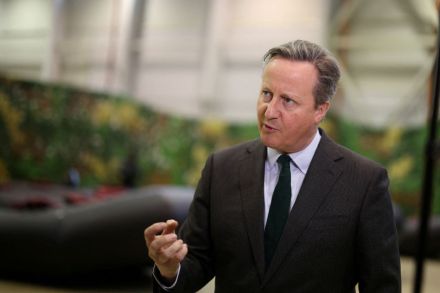Was Cameron behind Prince William’s Gaza intervention?
Eyebrows in Westminster this week after Prince William opted to wade into the Gaza conflict. On Tuesday, the Prince of Wales declared that ‘Too many have been killed’, adding ‘I, like so many others, want to see an end to the fighting as soon as possible’. Royals typically remain neutral on geopolitical matters so why William’s willingness to intervene? Tory peer Stewart Jackson said the intervention was ‘ill-timed and ill-judged’ while Nigel Farage, the former Ukip leader, called it a ‘step too far’ for the future King. One theory now being put forward is by the former Labour Chancellor Ed Balls, who suggested that William could be acting on the




















